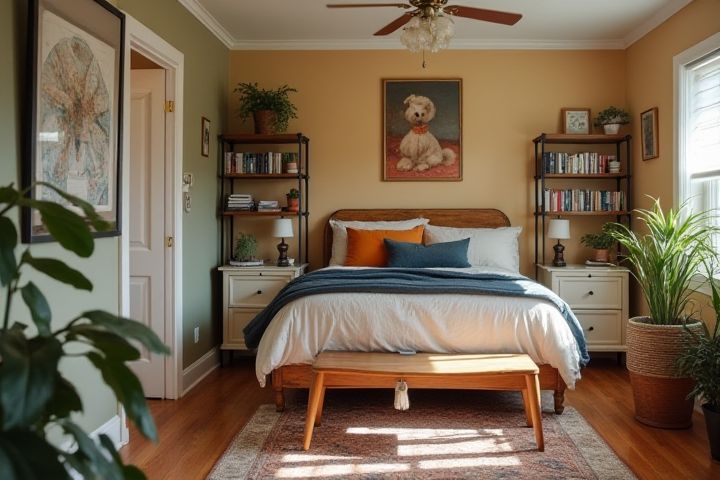
You can Airbnb your house by listing it on the platform, allowing travelers to book a unique stay in your space. To maximize bookings, ensure your listing includes high-quality photos, a detailed description, and competitive pricing based on local rental markets. Compliance with local regulations is crucial, so check zoning laws and any required permits or taxes associated with short-term rentals in your area. Establishing clear house rules and offering amenities like Wi-Fi and a well-equipped kitchen can enhance guest experiences, leading to positive reviews. By actively managing your listing and responding promptly to inquiries, you increase the likelihood of successful rentals and repeat guests.
Can We Airbnb Our House
Local Short-term Rental Laws
Before listing your home on Airbnb, it's crucial to understand local short-term rental laws, which can vary significantly by city and region. In many areas, you may need to register your property, pay specific taxes, or abide by zoning restrictions, such as limits on occupancy or rental duration. For instance, cities like San Francisco require hosts to register with the city and obtain a business license, while others may impose strict fines for non-compliance. Familiarizing yourself with these regulations can help ensure a smooth hosting experience and protect your investment.
HOA Restrictions
When considering Airbnbing your house, it's crucial to understand your Homeowners Association (HOA) regulations, as violations can lead to fines or legal action. Many HOAs have specific rules about short-term rentals, often requiring permission or placing limits on rental frequency. You should review your HOA's bylaws and meeting minutes to gauge their stance on renting out your property. Compliance with these regulations ensures you protect your investment while potentially generating supplemental income.
Insurance Requirements
When listing your house on Airbnb, it's crucial to understand the insurance requirements for short-term rentals. Many homeowners' insurance policies do not cover incidents that occur during rental periods, necessitating specialized short-term rental insurance, which can range from $100 to $300 annually. Additionally, Airbnb provides a host guarantee program, offering coverage up to $1 million for property damage, but you should check local laws as some areas require liability coverage. Ensure you review your policy and consult with your insurance provider to safeguard your property and assets effectively.
Tax Obligations
If you decide to use your house for Airbnb, be aware of potential tax obligations, as earnings from short-term rentals can impact your taxable income. In many regions, you may need to report your Airbnb income and can often deduct related expenses, including maintenance, cleaning, and utilities. The IRS mandates that you must report rentals on Schedule C if you rent your home for 14 days or more, but you can also qualify for a rental property tax deduction. Ensure you stay informed about local laws, as some cities impose specific taxes or require permits for short-term rentals.
Safety Regulations
Airbnb hosts must prioritize safety regulations to ensure a secure environment for guests. Key requirements include having functional smoke detectors, carbon monoxide detectors, and fire extinguishers installed in appropriate locations throughout the property. Additionally, maintaining clear evacuation routes and providing first-aid kits can enhance guest safety. You should also familiarize yourself with local ordinances related to short-term rentals, as many cities impose specific safety standards and inspection processes for hosts.
Hosting Responsibilities
Hosting on Airbnb involves several key responsibilities to ensure a positive experience for guests and maintain your property. Thoroughly cleaning your home before each check-in is crucial, with a high focus on areas like kitchens and bathrooms, where hygiene is paramount. You should also provide essential amenities, such as fresh linens, towels, and toiletries, which significantly enhance guest satisfaction. Clear communication is vital; responding to inquiries within 24 hours can improve your rating and attract more bookings.
Cost of Maintenance
When considering Airbnb as a rental option for your house, it's essential to evaluate the cost of maintenance thoroughly. Regular upkeep includes cleaning, landscaping, and minor repairs, which can accumulate over time. Additionally, emergency repairs and seasonal maintenance can significantly affect your overall profitability. By factoring in these costs, you can better assess whether hosting on Airbnb aligns with your financial goals and expectations.
Occupancy Limits
Understanding occupancy limits is crucial when considering Airbnb your house. Most local regulations dictate a maximum number of guests based on the number of bedrooms, often allowing two guests per bedroom, plus an additional two guests in common areas. For instance, if your home has three bedrooms, the occupancy limit might typically be set at eight guests. Be sure to check your local laws, as violating occupancy limits can result in substantial fines and potential loss of your listing.
Guest Screening Process
Implementing a robust guest screening process is essential when you decide to list your house on platforms like Airbnb. This process typically includes reviewing potential guests' profiles, checking their previous reviews, and verifying their identity through government-issued IDs. You can enhance safety by setting specific house rules and communication guidelines to ensure a clear understanding of expectations. Employing a seamless online booking system also aids in tracking guest interactions and reservations, fostering a secure and trustful hosting environment.
Airbnb Platform Fees
When listing your home on the Airbnb platform, it's crucial to understand the structure of Airbnb platform fees, which typically range from 3% to 14% of the booking subtotal, depending on your cancellation policy and other factors. This fee impacts your overall earnings, so calculating net profits after these charges is essential for making informed decisions. For example, if you charge $150 per night, with a 10% fee, you would receive $135 after the platform fee is deducted. Keeping track of these fees can help you set competitive yet profitable pricing on the Airbnb platform.
